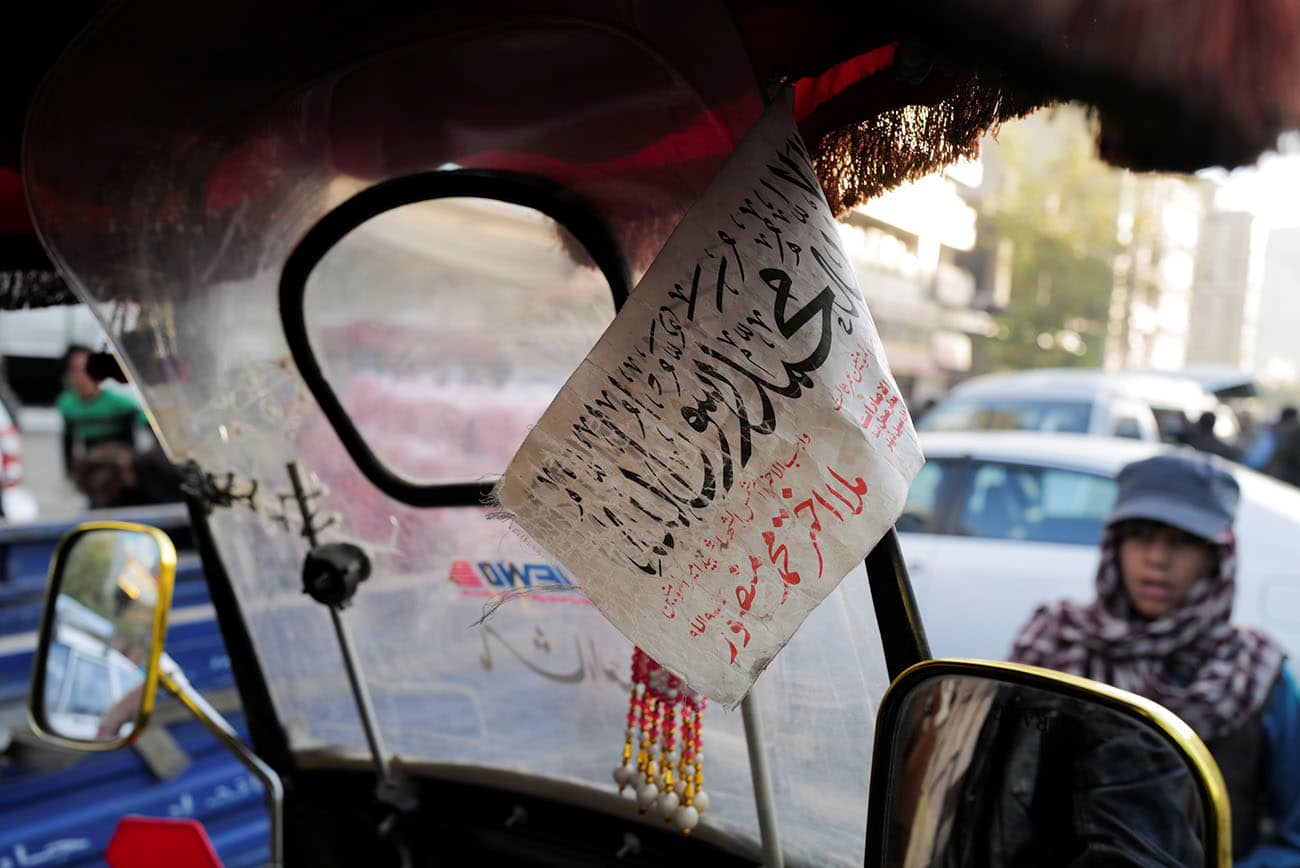As the first issue of The Jerusalem Strategic Tribune was going to print, a long, dark shadow was falling fast upon the future of our region, of US policy, and of the international order. Events in Afghanistan—and the manner in which they were being portrayed and interpreted worldwide—made some of the question marks raised on our pages all the more powerful and poignant.
This, our second issue, thus took shape amid the need to offer some reflections on what might be the meaning of the fall of Kabul. America’s longest-ever war has come to a painful end. Well beyond what the US retreat would mean for the people (and particularly the women) of Afghanistan, and the degree to which it evokes the sad and dormant memories of 1975, it also raises cogent questions about where our region is headed, as well as about basic aspects of military affairs, intelligence challenges, and effective diplomacy. For Israel, as Dennis Ross suggests in his essay, the combination of the changing US political landscape and the reluctance to revert to the use of force poses profound policy questions—but also implies closer affinity with its equally worried neighbors.
The outcome in Afghanistan is thus treated here from several angles. In an essay that was written as the final crisis unfolded, Annie Pforzheimer—who oversaw policy in Afghanistan in the previous administration—offers us her timely insight into the fate of a failed mission. So does Dov S. Zakheim in his retrospective column, reflecting on the tragedy as it was driven by decisions in Washington. Richard Olson, who had served as special representative to Pakistan and Afghanistan and as US ambassador in Islamabad, provides a firsthand account of the complexities of the American–Pakistani relationship and explains why the bitter imprint of what happened in Afghanistan will not be easily overcome. Amir Oren, in his “Inside Intelligence” column, discusses the failure to assess the capabilities of friendly forces as a major lacuna of intelligence and decision making; the same point is central to Amos Gilead’s testimonial book, reviewed in our literature column. Pnina Shuker, in her column on military matters, draws useful (and painful) parallels with Israel’s own “longest war” in Lebanon, 1982–2000. And in a suggestion to decision makers in Washington, Robert Silverman’s column takes a cue from the inner workings of hospitals so as to ensure that reservations are heard before fateful decisions are taken.
The Koreans, I am told, have a saying congruent with their landscape: “Beyond the mountains, more mountains.” The long war is over: But will it be followed by more conflict? What will be the role of military force in the power equations that may now unfold? In a seminal essay, Efraim Inbar—one of Israel’s most prominent scholars of international affairs—reminds us that war, for all its horrors, has been with us since the dawn of humanity and may well remain a formative feature of our future. This is true not only for our troubled region but also in the context of great power competition and the rise of China (as expounded in our previous issue).
One obvious focal point for potential conflict is the ongoing quest by Iran for the possession of the bomb. The fundamental aspects of the debate are all here. In an alarming essay, Joab Rosenberg—a leading analyst in Israel of Iran’s nuclear policy—warns that past assumptions may no longer hold, and Iran is now determined to press ahead: The time to stop the project is running out. In my own column on identity and grand strategy, I venture to explain what makes the present regime in Tehran so hostile to Israel’s very existence. While Mark Dubowitz of the Foundation for Defense of Democracies makes the case for a more robust set of pressures, John Limbert, an experienced observer—and one of the hostages in the 1979–1981 crisis—warns against repeating the mistaken modes of action that have failed to sway Iran ever since the Islamic Revolution.
Alongside these new or reawakening nodes of conflict come new (or renewed) modes, such as PSYOPS, as ancient as Rabshakeh, the Assyrian demoralizing the people of Jerusalem in King Hezekiah’s time, and as new as this morning’s fake news. Yaacov Falkov offers us a warning about this asymmetric tool in the hands of nondemocratic challengers. In a similar category of postmodern warfare, Lev Topor takes a troubling look at national vulnerabilities to intensive cyberattacks.
At the same time, we are reminded that not all such challenges succeed. Ksenia Svetlova’s profile column portrays Ahmad Jibril of the PFLP-GC, whom she met as a journalist. His passing served to symbolize the end of an era: Once a central figure in the campaign of terror against Israel, his organization ended up as a shadowy presence among the forces helping the Syrian regime repress its own people.
Terror does not (always) succeed, and there are real avenues for progress even in a world fraught with tensions. In continuation of the debate about peace on our first issue, Koby Huberman walks us through the complex paces of mobilizing civil society in support of peace in the Middle East, writ large. James Foggo tells the story of dialogue with Israel from a naval officer’s perspective—and conjures the image of the Native American talking stick, which requires the speaker to argue the other side’s points. Reuven Ben-Shalom expands the discussion to encompass the case for military diplomacy, while Thomas Goldberger explains how the Multinational Force and Observers in Sinai helps sustain the peace. Finally, so as to end on another positive note, J. Peter Pham, another former US envoy, celebrates the renaissance of Israeli–African relations.
All this adds up to a mosaic of challenges, responses, and attitudes. The debate intensifies, and there will be more in the coming issues.



